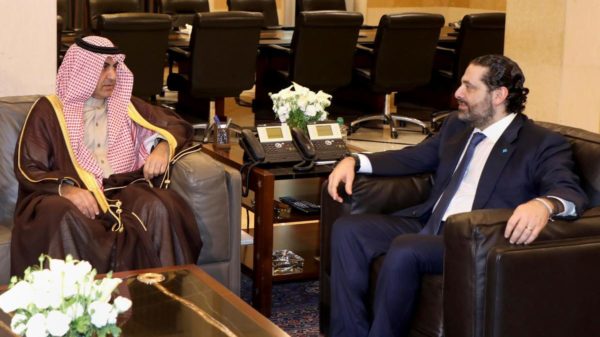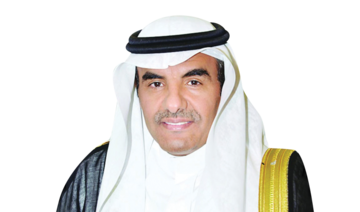
Saudi Arabia’s ambassador to Lebanon says the kingdom has lifted a 15-month warning that had advised its citizens not to travel to Beirut.
Walid Bukhari made the statement in Beirut on Wednesday following a meeting between Saudi royal court envoy Nizar al-Aloula and Prime Minister Saad Hariri.
In November 2017, Saudi Arabia advised its citizens not to visit Lebanon and those already in the country to leave. The warning came days after Hariri announced his resignation in a televised address from Saudi Arabia before he later withdrew it.
The lifting of the Saudi warning comes two weeks after a new Cabinet was formed in Lebanon.
Tension has been high for years between Saudi Arabia and Lebanon’s powerful Iran-backed Hezbollah group that the kingdom lists as a terrorist organization.
Interfaith dialogue

In a related development a Saudi youth delegation visited Lebanon recently to participate in an interfaith dialogue in the context of coexistence and rapprochement according to a report by Saudi Gazette
Dr. Shadi Fouad Khawandanah, chairman of Direction for corporate social responsibility, said the program was of great importance to study and spread the culture of moderation and respect for others
He affirmed that Saudi Vision 2030 has set a well-established approach for dialogue and knowledge exchange.
Dr. Khawandanah said the delegation visited different religious references to discuss the eminence of religions and constructive interaction from all perspectives and religious beliefs including the spiritual and humanitarian tendencies.
The delegation met with Sheikh Abdul Latif Daryan, the mufti of Lebanon, who called for preserving the Islamic unity among all sects as well as national unity between Muslims and Christians by focusing on inter-religious deportments, such as tolerance and acceptance of the other despite differences and non-interference in the affairs of the other.
The Saudi delegation also met with Sheikh Naim Hassan, a Druze spiritual leader who explained to them the principle of co-existence in the Lebanese society among different sects.
He praised the Saudi role in supporting the principle of dialogue through King Abdullah International Center for Interfaith Dialogue in Vienna.
The delegation also visited Sheikh Abdul Amir Qablan, president of the Supreme Islamic Shiite Council in Lebanon, who focused on the principle of citizenship and not using the sanctity of dialogue with the aim of changing the beliefs of the other.
He focused on supporting dialogue and rapprochement and respecting the sanctity of beliefs to preserve primarily the peace of homelands and humanity.
Qablan was impressed by the idea of the Direction Knowledge and Cultural Exchange Program and the ideas put forward by the Saudi delegation to preserve humanity as a goal of interfaith dialogue.
The Saudi delegation later met Reverent Charbel Abir, the general secretary of the Maronite Patriarch, who stated that the Lebanese constitution approved 18 religious sects that formed the diverse religious formula in Lebanon. The law ensured that there were no barriers between different sects. He spoke about the challenges facing dialogue and understanding of the other, stressing the need to strengthen the principle of understanding and citizenship and the need to work with respect and provide all what guarantees safety and security of society.
AP

Leave a Reply
You must be logged in to post a comment.